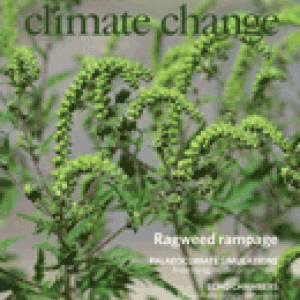
More than a third of the world's adults have never heard of climate change according to a new study published in Nature Climate Change. The study is based on the results of a Gallup World Poll undertaken in 2007-08 which collected responses in 119 countries .
As reported in a Carbon brief blog-post the poll asked people: ‘How much do you know about global warming or climate change?’ Those who were aware of the issue were then asked the follow-up question: ‘How serious a threat is global warming to you and your family?’
The researchers analysed the responses in relation to social, financial and behavioural factors such as age, education level, urban or rural location, income, access to tailored climate communication (to foster climate literacy), and engagement on civic and environmental matters, to see if they were linked. Their conclusion is that education is most significantly linked to climate change awareness followed by access to communication. The authors emphasise that it is a question of links rather that clear causation of awareness. They tell Carbon brief that "You need experimental data to prove the role of a particular factor. But the relationship makes a lot of intuitive sense - if you lack education or literacy, it's very hard to participate in or follow a global discourse about a problem that is often described in the language of science and global politics."
The paper argues that education is an important tool to help speed up the process of fostering awareness and concern for climate change.
The 10 top and bottom countries on the list of awareness of climate change are as follows:

Data source: Lee et al. (2015)
Abstract
Climate change is a threat to human societies and natural ecosystems, yet public opinion research finds that public awareness and concern vary greatly. Here, using an unprecedented survey of 119 countries, we determine the relative influence of socio-demographic characteristics, geography, perceived well-being, and beliefs on public climate change awareness and risk perceptions at national scales. Worldwide, educational attainment is the single strongest predictor of climate change awareness. Understanding the anthropogenic cause of climate change is the strongest predictor of climate change risk perceptions, particularly in Latin America and Europe, whereas perception of local temperature change is the strongest predictor in many African and Asian countries. However, other key factors associated with public awareness and risk perceptions highlight the need to develop tailored climate communication strategies for individual nations. The results suggest that improving basic education, climate literacy, and public understanding of the local dimensions of climate change are vital to public engagement and support for climate action.
Citation
Lee, T. M., Markowitz, E. M., Howe, P. D., Ko, C., Leiserowitz, A. A. (2015) Predictors of public climate change awareness and risk perception around the world, Nature Climate Change, doi:10.1038/nclimate2728
Read more about the survey in Nature Climate Change here and read the blog-post by Carbon brief here.
See more about climate perceptions in the keyword categories Public attitudes and behaviour and practice.







Post a new comment »